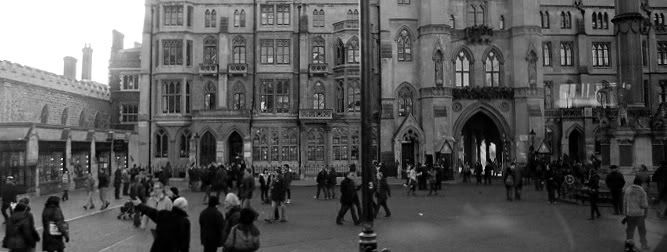
Places become famous for reasons, legitimate or not. Something is the largest or the oldest, the site of a well-known story or momentous event. It could be a display of bizarre wonders, of aesthetic beauty, of something worth seeing. People and doings have come and gone, and in their place remains a monument or building or a swathe of ground. It is this thing, this place that others now flock to, to be visited so they can affirm that yes, they have indeed been there.
The idea of tourism is in itself logical enough, innocuous enough; it exists because it’s market supply and demand. Yet the primary idea behind tourism is that it is attraction-based— what will draw in the largest crowds? It’s flashy and loud and superficial. And in that, something is inevitably lost in translation. The original weight and meaning in a fifteenth-century castle, the natural beauty of a stretch of beach, the functional importance of a governmental building, the mysticism around a half-buried ruin with no known history. All of these have become entries on brightly-coloured pamphlets, labeled “must-see.†When one visits France, one is expected to visit the Eiffel Tower, visit the Louvre, and bring back photographic evidence. And then there you go; you’ve seen France.
Sometimes, tourism can be beneficial in that it engenders awareness about something many would not have known otherwise, or provides income for those who need it. On the other hand, it reinforces stereotypes and gives rise to another level of consumerism. It’s commercial; it’s pandering to the masses. When something has become popular for popularity’s sake, though, it has moved, in some oddslot fashion, onto another plane altogether. It has been transformed into an icon, something that is famous for being famous. It has become larger than itself in the public imagination.
Something about tourism irks me still. I am uncomfortable playing the role of tourist, unfoundedly nor not. I do want to see this site, to take the old train up, to step where someone or other has once stood. I do not mind being shepherded along, having things explained to me. It’s nice, really.  Perhaps tourism is inevitable. Places hold meaning, and something in us drives us to see, to be, to take some small part in that meaning. It is not unusual that the unfamiliar frequently holds some sort of draw. One cannot be native everywhere— there is a location (or two or three) that is home. And when one is away from home, following a set of painted white lines is perhaps the safest and most practical way to go. Traveling is understandably a luxury, but should one have the opportunity, it would not go amiss to grasp that opportunity, and take it in a different (and perhaps more worthwhile) direction.


Leave a Reply
1 Comment on "Of Other Lands"